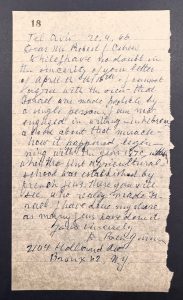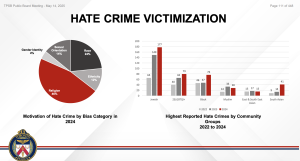 TORONTO — “We want to wake up to a peaceful tomorrow,” says Alon Davidi, right, chair of the Sderot Defence Council.
TORONTO — “We want to wake up to a peaceful tomorrow,” says Alon Davidi, right, chair of the Sderot Defence Council.
Davidi, whose grassroots advocacy organization raises awareness
about Sderot’s plight as a town under constant Palestinian rocket and
mortar fire, plaintively expressed hope that its long nightmare will
soon end.
For the past seven years, particularly since Israel’s unilateral
withdrawal from the Gaza Strip in 2005, Sderot has endured an
almost-daily succession of Qassam rocket and mortar attacks.
More than 7,000 Qassams and mortars, launched mainly by Hamas and Islamic Jihad, have landed in Sderot and surrounding communities, killing 13 civilians, injuring hundreds more and damaging many residential and commercial buildings.
Israel has retaliated, striking rocket launcher crews and their bases in Gaza, but to no avail.
“This is a town under trauma,” said Davidi, who was in Toronto late last month as part of a North American tour to highlight Sderot’s vulnerability.
In an interview, he said that the bombardments have driven away some 4,000 residents from beleaguered Sderot, which had a population of 24,000 until quite recently.
“The people with money have left,” he said, adding that the situation has depressed real estate prices. “If the firing doesn’t stop, thousands more will leave.”
He warned that if Israel fails to take much stronger military steps to end the terrorism, Ashkelon, a neighbouring city with a far larger population, will find itself in the same boat as Sderot.
“There is a big war in Sderot,” said Davidi, whose appearance was sponsored by the Toronto Zionist Council. “Hamas wants to kill Jews and harm Israel.”
Declaring that Sderot needs the moral and financial support of the Canadian Jewish community for what may be a prolonged siege, Davidi said, “We’re a big family. We’re in this together.”
Davidi, 34, has lived in Sderot for the last 12 years. Shortly after a Qassam struck his home in 2006, breaking windows, splintering furniture and traumatizing his wife and children, he founded the Sderot Defence Council.
“I thought we could live with the Qassams, but then I realized we have to deal with them.”
The council, which is politically non-partisan, has taken the lead in lobbying the Israeli government for help.
It has organized rallies, marches and demonstrations, including vigils in front of the homes of Prime Minister Ehud Olmert and Defence Minister Ehud Barak.
It has also assisted families that have been physically, mentally and economically victimized by the bombardments.
And it has forced the Israeli government to reinforce thousands of homes in Sderot. Two weeks ago, Israel allocated more than $90 million to fortify 3,600 homes within a four-kilometre range of Gaza. Homes beyond that range will supposedly be protected by an anti-missile defence system due to become operational within approximately two years.
Davidi was critical of the fact that the government has not set aside funds for the additional fortification of about 3,500 homes in Sderot.
“We feel like we’re struggling to convince the government to protect us. Why? Why?”
Claiming that Olmert has grown timid since the Second Lebanon War in 2006, Davidi complained that the prime minister has visited Sderot only twice, and only after midnight. “He’s afraid to see the people of Sderot suffering.”
As well, he voiced disappointment that Barak has broken his promises and not “fixed the problem.”
According to Davidi, Israeli tactics have not worked. Neither pinprick raids into Gaza nor the partial cutoff of fuel and electricity supplies to the territory have been effective in deterring terrorists.
Calling for tougher measures, he urged the Israeli army to reoccupy the northern part of Gaza and the Philadelphi Route, the strip of land between Israel and the Egyptian border, from where, among other locales, Palestinians launch rockets and mortars.
“You need to blow up their homes and kill their leadership,” he said. “Unless we do this, Sderot will suffer.”
He dismissed the possibility of an Israeli truce with militant Palestinian groups that have taken responsibility for the bombardments.
“Hamas will not honour a ceasefire. It has not honoured previous ceasefires. They bring only short-term relief. You need to break the evil. A normal country can’t allow its citizens to be hurt.”
Davidi described Israel’s unilateral pullout from Gaza as “a very big mistake,” and he had nothing but scorn for a recent European Union call for Israel to cease military operations in Gaza, lift its blockade of Gaza and refrain from inflicting “collective punishment” on Palestinian civilians there.
In this story, photo taken by Ed Dunbar






